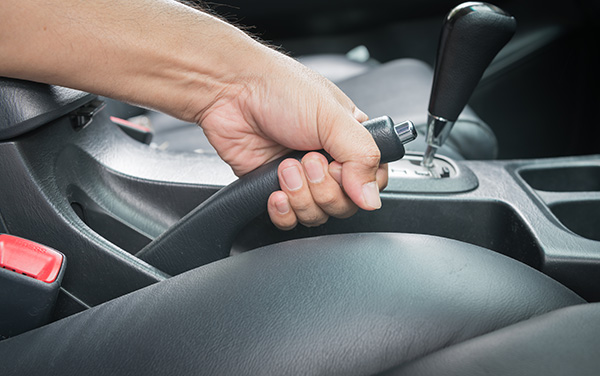
Your parking brake, also known as the emergency brake or handbrake, might seem like a backup system you rarely use. But when you need it to work on a steep incline, during a tow, or in the event of hydraulic brake failure, it has to do its job. If you've noticed that your parking brake doesn’t hold like it used to, it could point to one of several issues hiding beneath your vehicle.
Ignoring a weak or nonfunctional parking brake is more than just an inconvenience. It can create a serious safety risk and lead to damage if your vehicle rolls unexpectedly. Let’s explore what might be going wrong and what to do about it.
How the Parking Brake Works
Unlike your main brake system, which relies on hydraulic fluid to activate calipers or wheel cylinders, the parking brake is mechanical. It typically uses a cable system connected to either the rear disc or drum brakes. When you engage the handbrake or foot pedal, that cable tightens and applies braking force to the rear wheels.
In some modern vehicles, especially newer models with electronic parking brakes, this process is managed by an electric motor rather than a cable. No matter the setup, the purpose is the same—to lock the wheels in place and prevent movement when the vehicle is parked.
Worn Brake Components
One of the most common reasons your parking brake isn’t holding is worn-out brake shoes or pads. If your vehicle uses rear drum brakes for the parking brake, the shoes can wear down over time and lose their grip. In disc brake setups with a separate parking brake mechanism, the pads may also become too thin to hold the rotor in place.
If the brake shoes or pads are too worn, the parking brake cable pulls, but there isn’t enough friction to hold the vehicle still. This usually becomes noticeable when the car rolls slightly even after you’ve engaged the brake.
Stretched or Loose Brake Cable
With regular use, the parking brake cable can stretch and lose tension. When this happens, pulling the handle or pressing the pedal doesn’t apply enough force to lock the wheels properly. In some cases, the cable may become so loose that it feels like it has no resistance at all.
Routine parking brake adjustments help keep the cable tight enough to function. If the cable is excessively worn or frayed, it may need to be replaced entirely.
Rust, Corrosion, or Frozen Components
Moisture, salt, and dirt can all wreak havoc on the moving parts of your parking brake system. If your vehicle sits unused for a while, especially in wet or humid conditions, the brake components may start to rust or seize. This can prevent the parking brake from engaging fully or keep it from releasing once it's set.
Signs of corrosion-related issues include the parking brake sticking in place, feeling overly stiff, or not returning to its resting position after use. A professional inspection is the best way to determine if frozen hardware is the culprit.
Damaged Rear Brake Hardware
Some vehicles use the same rear brake components for both the main braking system and the parking brake. If something’s wrong with the calipers, wheel cylinders, or drum mechanisms, the parking brake may also fail to hold. A caliper that’s sticking or a drum that’s out of adjustment can reduce braking power and make your emergency brake feel weak.
In these cases, fixing the primary brake system often restores the parking brake’s effectiveness, too.
You’ve Upgraded to Larger Wheels or Tires
Larger, heavier wheels or tires change the mechanical leverage on your brake system. This is common on trucks, SUVs, or modified vehicles. If your parking brake worked fine before and started failing after a tire upgrade, it might need recalibration or upgraded components to keep up with the added load.
When to Get It Checked
Any time your parking brake isn’t working reliably, it’s a good idea to have it inspected. Whether it’s dragging, not holding on hills, or feeling too soft or too tight, those symptoms usually mean something is out of adjustment or wearing down.
Catching the issue early can prevent bigger problems like rolling into another vehicle or wearing out other parts of the braking system. A trained mechanic can test the tension, check the rear brakes, and identify whether the problem is in the cable, calipers, shoes, or hardware.
Parking Brake Repairs You Can Trust in Bear, DE
At Fox Run Auto in Bear, DE, we understand how crucial a functioning parking brake is for safety. Our technicians can inspect, adjust, or repair your parking brake system to ensure your vehicle stays put when it should. Whether you drive a compact sedan or a heavy-duty SUV, we’ll make sure your emergency brake is reliable and responsive.
Call us or stop by today for an inspection and stay in control, even when your car is parked.